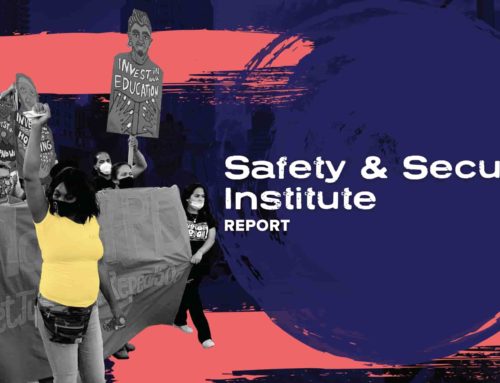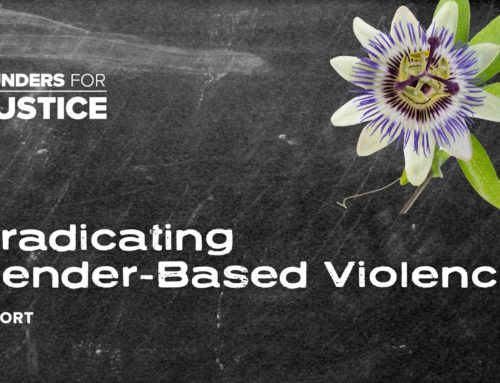Photo: Cole Witter
BY RAQUEL WILLIS
June 30, 2020
Earlier this month, as companies and brands scrambled to respond to the deaths of George Floyd, Breonna Taylor, and others, they decided to postpone or forego Pride campaigns altogether. Essentially, they acted as if the Movement for Black Lives and the LGBTQ+ Movement were at odds with each other. But the last few weeks have shown that it’s time for a massive prioritization and resourcing of the Black trans community.
Just two days after Floyd’s death, Tony McDade, a Black transgender man, was fatally shot by a police officer in Tallahassee, Florida. As the general public rallied around Floyd, McDade’s name was consistently lost in the cacophony of reported murders of cisgender people. This lack of media coverage by mainstream publications has stifled support for demanding justice for McDade.
Within a several-hour span two weeks ago, it was reported that two Black transgender women—Dominique Rem’mie Fells and Riah Milton—were brutally murdered. Fells’s body was found near Philadelphia’s Schuylkill River with stab wounds, head and face trauma, and severed legs—one of the most gruesome cases reported domestically. Just days ago, a 17-year-old Black trans girl named Brayla Stone was reported dead in Sherwood, Arkansas. Anti-trans violence continues to ravage our community, and few resources have been designated for organizers and activists doing the important work to alleviate it.
As we honor the anniversary of the Stonewall Riots, let’s commit to shift from tragedy to transformation. First, let’s fully honor Black transgender history. It was in the wake of the Stonewall Riots, the queer militant rebellion that gave rise to a decades-long movement for equality, that a large nonprofit industrial complex led by mostly white bourgeois cisgender gay men and lesbians emerged. As this power-broking group fought to assimilate into the broader society, it consciously sidelined more marginalized groups like people of color and trans and gender-nonconforming folks who largely spearheaded the uprising at Stonewall on that fateful night. The contributions of Black trans and gender-nonconforming folks like Marsha P. Johnson, Miss Major, and Zazu Nova were largely ignored for decades.
Now, after Supreme Court rulings have enshrined marriage equality and LGBTQ+ workplace protections, Black LGBTQ+ people are still plagued with even more discrimination than their non-Black counterparts. While mostly white and mostly cisgender national nonprofits have poured millions into legislative and judicial fights, very little funding and resources have trickled down to Black trans grassroots leaders and organizations. Most donations and proceeds from those aforementioned annual pride campaigns go to organizations that hardly, if ever, serve our communities. It’s time to change that.
We have to build up the economic empowerment and leadership of Black trans people. The general public, brands, and companies should prioritize supporting and donating to Black-led LGBTQ+ grassroots organizations. This should be the last year that national organizations without Black leadership and that don’t serve Black folks should be allowed to monopolize Pride Month. This is a time when massive amounts of funding are directed to the LGBTQ+ community. From now on, celebrities, influencers, and models should reject campaigns that do not benefit Black-led and Brown-led organizations. As well, this is a charge to national organizations to recruit and hire Black trans and queer people, particularly into leadership positions.
Next, we must prioritize housing, health care, and sustenance for Black trans people. We can do this by supporting many Black trans-led initiatives that are securing long-term housing for their communities. In New York, there’s Gays and Lesbians Living in a Transgender Society (GLITS) and Princess Janae Place. In New Orleans, there’s House of Tulip. In Atlanta, there’s the aptly titled Homeless Black Trans Woman Fund. Then, initiatives like For the Gworls are supporting trans people with medical expenses, and the Okra Project is expanding access to food for our people.
We all must demand safety for Black trans people and accountability for those who cause harm. We are facing violence from the state and within our communities. While we must support defunding police and abolishing prisons (because the criminal justice system has never taken Black trans lives seriously), we also have to actively find alternative ways to get justice on behalf of trans victims. Organizations like Solutions Not Punishments Collaborative, TGI Justice Project, and Youth Breakout are at the frontlines of finding those methods, but cis people should also be making sure that the trans people they know are safe and be invested in their lives. They also should be holding other cis people accountable when they are exhibiting harmful and transphobic tendencies. Oftentimes, those who commit harm are average cisgender folks who have never truly been put in check about their hate.
Beyond funding our efforts, cisgender people must reckon with their lack of empathy for trans people. We live in a society that, since birth, has indoctrinated all of us with restrictive ideas about gender and identity. Oftentimes, if you feel discomfort when you think about or encounter trans people, it’s because you have some unresolved issues with your own gender. You should interrogate why devaluing, belittling, and/or ignoring what happens to trans people feels so natural to you. How do you benefit from reacting negatively to our experiences? And how can you move beyond your feelings of discomfort or confusion into understanding and valuing our humanity?
Lastly, allies must actively transform their institutions. Cis people have a duty to uphold the dignity of Black trans people in their churches, schools, workplaces, and families. How can you make sure your religious leaders aren’t spouting off transphobic sermons? How can you ensure that students are respected in their identities and not bullied in your school? How can you make sure that your trans friend or neighbor makes it home safely? How can you make sure your transphobic relatives treat your trans loved ones with decency? You must elevate Black trans power.
The charge for everyone this Pride Month is to reflect on and restore the roots of the LGBTQ+ Movement. Beyond pride campaigns and social media gestures, our fight was literally birthed from a collective that was multiracial, gender-expansive, and anti–police brutality. And that fight goes beyond a few weeks each summer. The Black trans community has especially heeded the call recently with a rally drawing more than 15,000 people in honor of our lives and marches across the country. But the fight doesn’t end here. You must make a lifelong commitment to ending the violence and discrimination that we face. After all, when Black transgender people are free, everyone else will also be free.
Raquel Willis is a Black transgender activist, writer, and the director of communications for the Ms. Foundation.

.jpg)
.jpg)
.jpg)
.JPG)

